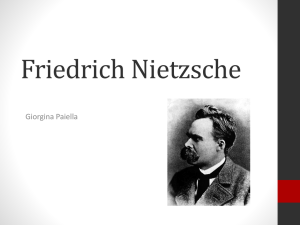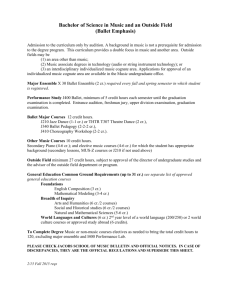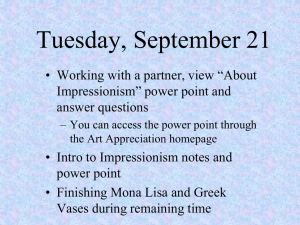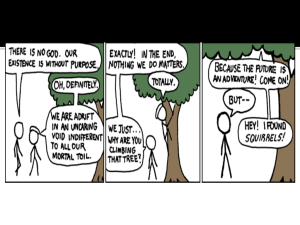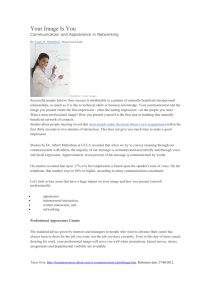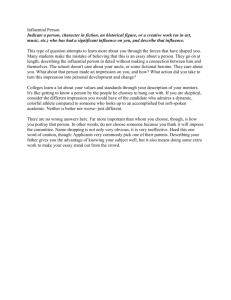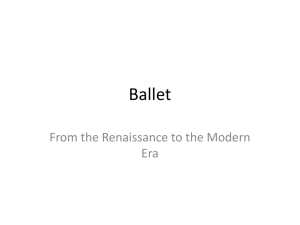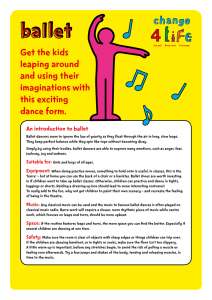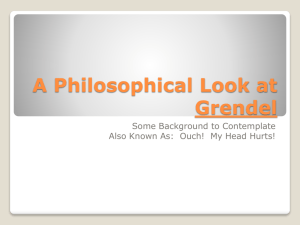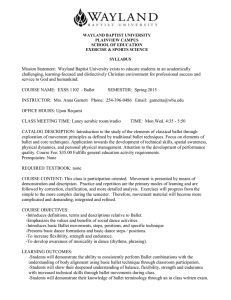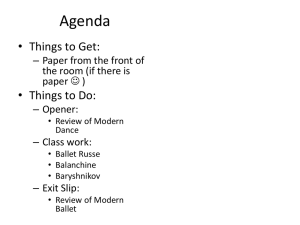PowerPoint: Philosophy & The Arts
advertisement
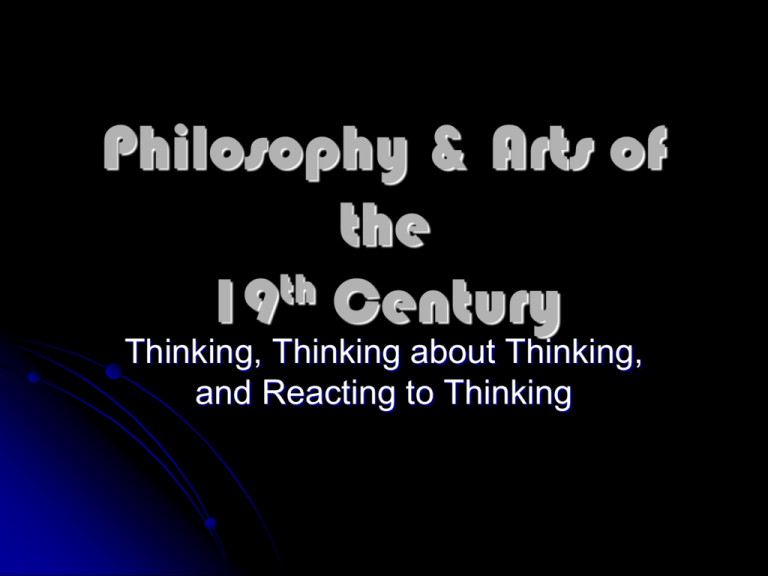
Philosophy & Arts of the th 19 Century Thinking, Thinking about Thinking, and Reacting to Thinking I. Its All Their Fault A. Darwin B. Einstein C. Freud II. Nietzsche & “Will to Power” A. Human motivation is desire for… Concludes a new moral code is evolving Judeo-Christian morality was NOT… Tradition is OUT B. Will to Power “Superman” Individual that can assert power over himself; man of passion with the courage to follow his instinct. “Eat from the tree of knowledge and be PROUD.” C. Immoralism “When man no longer regards himself as evil he ceases to be so.” “God is dead. God remains dead. And we have killed him” Parable of the Madman D. Nihilism Old truths have lost their validity: believe in NOTHING (Nietzsche DIDN’T buy this- felt his system was above nihilism ) III. Existentialism A. Existentialists considered only ONE issue B. Sǿren Kierkegaard 1. rejected Hegel’s idea the philosophy is a science 2.There are NO universal truths C. Jean-Paul Sartre Must use free will to make own choices… “terrifying freedom” live without knowing if your choice… D. Christian Existentialists IV. Modernism BIG movement of art and literature Writers and artists rebelling against… A. Naturalism replicating a believable, everyday reality 1. Henrik Ibsen A Doll’s House Picked apart the façade of Victorian life and showed… 2. . Emile Zola a. Subjects were real- STARK reality: Urban slums, coalfields, alcoholism b. he was “a moment of the human conscience” c. Germinal (1885) d. Other works: The Earth (land & peasants); The Drunkard (alcoholism); The Debacle (trauma of war) e. J’accuse about the Dreyfus Affair B. Realism One form of modernism painting Showing the harsh reality of everyday life C. Impressionism 1. Leave the studio 2. Depict the world… go outside and depict nature as never before; new oil paints and portable easel make this possible “Painters were interested in the experience of the natural world and in rendering it exactly as it is seen- not fixed and frozen with an absolute perspective, but rather as constantly changing and as it is glimpsed by a moving eye.” Impression, Sunrise (Impression, soleil levant) Manet- 1st Impressionist Olympia Water Lilies Monet 1 2 3 Renoir D. Post-Impressionism 1. Rejected the impressionists limits 2. Less… But NOT a… more… Distort form and color 2. Vincent Van Gogh Starry Night 3. Paul Cezanne Still Life With Skull Believed there was NO true, single perspective. He painted the same still lives from different perspectives, undermining one “true” perspective. BUT wanted to restore order and structure to art. E. Pointilism Use of tiny dots of color to create the impression of a single, unified whole Georges Seuret Le Pont de Courbevoie Sunday on the Island of La Grand Jatte V. Other Mediums A. Photography 1. Photography combined technology and realistic art 2. Realism art style an effort… 3. While others… B. Architecture 1. Steel freed architects from limits 2. 1st skyscraper in Chicago The ten-storey Home Insurance Building in Chicago, built in 1884–1885 Sullivan's Wainwright Building in St. Louis, 1891 Concerns about aesthetics and fire safety hampered the development of skyscrapers across continental Europe for the first half of the twentieth century C. Ballets Russes VIVACIOUS Freed ballet from it constraints and reawakened the art form 1. Stravinsky The Rites of Spring 2. Made ballet a global phenomena Wild, jarring tones; dance was a combination of ballet and non-balletvery physical and nontraditional. It was MEANT to be startling. When first shown in Paris, it caused a RIOT. Fights broke out in the box seats of the Opera House. The End!! …or is it just a beginning???
